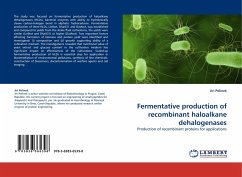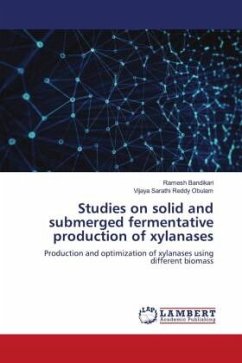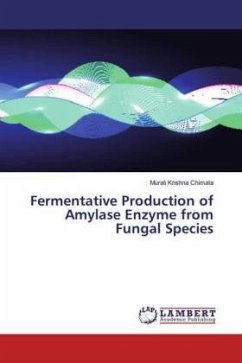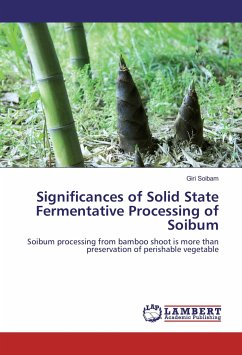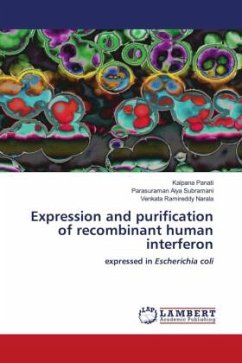The study was focused on fermentative production of haloalkane dehalogenases (HLDs), bacterial enzymes with ability to hydrolytically cleave carbon-halogen bond in aliphatic hydrocarbons. Fermentative production of three HLDs, LinBwt, DhaA31 and DatAwt, was established and compared to yields from the shake flask cultivations, the yields were similar (LinBwt and DhaA31) or higher (DatAwt). Two important factors affecting formation of biomass and protein yield were identified and investigated: (i) composition and (ii) growth supporting ability of a cultivation medium. The investigations revealed that nutritional value of yeast extract and glucose content in the cultivation medium has significant impact on effectiveness of the cultivations. Scaled-up fermentative production of HLDs is essential step for application in bioremediation of environmental pollutants, synthesis of fine chemicals, construction of biosensors, decontamination of warfare agents and cell imaging.
Bitte wählen Sie Ihr Anliegen aus.
Rechnungen
Retourenschein anfordern
Bestellstatus
Storno

